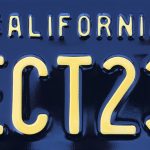
District Court Again Rejects Plaintiffs’ Attempts to Manufacture Common Law Notice-and-Takedown Duties–Bogard v. TikTok
This is a quirky lawsuit designed to subvert Section 230, the First Amendment, and traditional common law. I previously summarized the case: This lawsuit purports to focuses on the allegedly defective operation of the services’ reporting tools, but the plaintiffs’…

Courts Enjoin Internet Censorship Laws in Louisana and Arkansas
[I have a mondo draft roundup blog post, coming soon, covering a lot of segregate-and-suppress rulings. For now, I’ve prioritized coverage of these two rulings due to their importance. I’ll discuss the Louisiana law first, then the Arkansas law. Warning:…

OnlyFans Defeats “Chatter Scam” Claim–N.Z. v. Fenix
The court summarizes the plaintiffs’ “chatter scam” contentions: Plaintiffs allege that Fenix Defendants, in cooperation with the Agency Defendants, operate a fraudulent scheme whereby Fenix Defendants charge OnlyFans subscribers to communicate directly with creators, purport to connect subscribers with creators,…

Is Blogging a “Recreational Activity”?–Sander v. Westchester Reform Temple
In 2021, Jessie Sander was hired as a Jewish educator at the Westchester Reform Temple, located in Scarsdale, NY. Sander calls the temple a “Zionist institution.” The temple’s website still publicly espouses support for Israel. Shortly after she was hired,…

COVID Jawboning Lawsuit Dismissed (For Now)–Dressen v. Flaherty
This is a COVID-related jawboning case: Plaintiffs allege that Defendants violated their constitutional rights by pressuring social media companies to ban or limit their social media posts related to the COVID-19 vaccine….Plaintiffs characterize Defendants’ efforts as “relentless pressure, inducement, coercion,…

Court Authorizes Unmasking Subpoena in Copyright Case–In re DMCA Subpoena to GoDaddy
The copyright owner Tamaris claims that 100+ websites, including “casinoestelar.com” and “powerbet.win,” infringe their copyrights. The copyright owner obtained a 512(h) unmasking subpoena and served it on GoDaddy. GoDaddy notified the site operator, who asked the court to quash the…

Extortion Claims Against Ripoff Report Can Proceed–Selker v. Xcentric
My prior blog post on this case summarized: I’ve blogged many Ripoff Report cases over the years, but it’s been a while since my last one (looks like 2018?). In this case, the plaintiff alleges that someone posted a false attack…

YouTuber Loses Account Suspension Case Again–Hall v. YouTube
This is a futile account termination/content removal case, like dozens before it. Prior blog post. So I’m blogging this ruling for completion, not significance. After the prior dismissal, the YouTuber filed an amended complaint: The FAC complains that YouTube engaged…

Challenge to Maryland’s “Kid Code” Survives Motion to Dismiss–NetChoice v. Brown
[As I mentioned, I am backlogged on blogging decisions involving state Internet regulations from 2025. This decision gets fast-tracked due to its significance.] In 2022, California enacted its Age Appropriate Design Code, a segregate-and-suppress law. That triggered a possible California…

Terminated User Loses Lawsuit Against Facebook–Hunt v. Meta
“Plaintiff alleges that Meta deleted and blocked his Instagram and Facebook posts causing him ‘lost [sic] of earning, loss of earning capacity, damage to reputation in the past and future and mental anguish in the past and future.’…Plaintiff alleges that…
